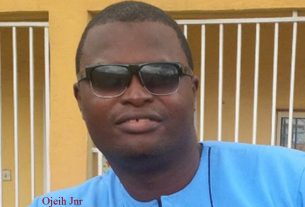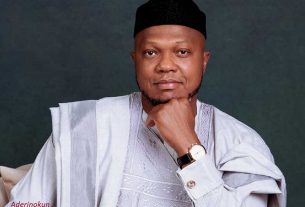- as veteran broadcaster celebrates 70

By Oyeyinka Oludayisi Fabowale
Biola Olatunde, novelist, poet, newscaster, script writer, drama producer and public speaker clocks 70 years today, October 3, 2020. The distinguished alumnus of the Obafemi Awolowo University, Ile-Ife has written more than 200 stories for radio and television, as well as poetry anthologies and two novels – Blood Contract and Numen Yeye (Book 1) with its sequel, Rose of Numen, in 30 of those long years.
Olatunde has engaged drama and fiction in drawing public attention to social issues, including writing for USAID on maternal health, democracy and governance, women’s issues and HIV/AIDS. She shot into limelight and reckoning as an artist about two decades ago with an intervention drama series she created for United Nations Population Fund (UNFPA towards behavioural change on teenage reproductive health.
The drama project tagged I NEED TO KNOW was so successful it won the sponsorship of the Canadian International Development Agency which had it adapted for the radio in two Nigerian major languages and shown on national, state and private television, as well as on satellite television!
In this interview to commemorate her 70th birthday anniversary, the veteran writer, broadcaster and former Charter President of (Sunshine) Toastmasters International Akure, Ondo State Chapter speaks about her life and the spoken word industry.
Excerpts:
Can you describe yourself and your life at 70?
It has been a life of grace, guidance and phases that have defied human calculations. I will always wish to be a woman. I loved my dad fully and consciously and I have kept up a conversation more than 50 years after he departed the physical. I have no regrets about this incarnation. Just hope that I did my best. When we are permitted to come across the Truth, we learn that nothing is really accidental. In the Laws of Eternity, every action is accounted for. I learned in the early years to know myself as a human being and wondered about the rationale for my incarnation.
I was never bitter, just curious most of the time
How would you compare the professional standard in broadcasting today with that of your days, particularly with respect to quality of speaking on air, hosting programmes?
Seems to me speaking well, and courteously has been ignored. I see this as the age of abbreviations. I feel kind of sad about this.
Today’s young persons do not really care about being thorough, the importance of the human word that is spoken. Programmes rarely have finesse attached to them. It is a reflection of the age. We may have placed the signposts wrongly. There is a shortcut to dubious popularity these days in the broadcasting world. Looks like anyone is allowed on air. The language is wrong. Hardly do you find prepared studied scripts.
When I came on air in 1976 for the first time in Radio Lagos, I had been given a six- week training to learn.
Your prescriptions for remedy?
I think the issue that has become a disease in my country is based on ‘who do you know?’ I have seen some radio stations where the officers are just errand boys. The announcers have acquired powerful boyfriends within the polity and see themselves as instant stars.
The remedy is simple. Allow the officers you have promoted some level of authority to teach, and encourage. A head of programmes must be able to discipline an erring presenter. It was regarded as promotion if you were permitted to read the news when I was there.
Now, you tune in and some girl is murdering the news with an affected accent that nobody knows or understands what she is blabbering about. Allow the trained voices to come on air. Train the voices is about the only remedy I can suggest
You once wrote a radio drama series that got sponsored by Canada International Development Agency (CIDA). Tell us about it.
I wrote the drama series I NEED TO KNOW, meant for teenagers and parents. I had been running a comic magazine called Ella, before then. I loved drama, but I only loved drama when it had a message; lesson to pass on. As I grew up, I was always confused that parents rarely talked to us on sexuality issues. The impression was we would become loose girls. One of my mum’s favourite injunctions was not to know a man as I would get pregnant.
That was very confusing as I would tell her as patiently as I could that my father was a man so were my brothers. Some of the confusion was the language, things like knowing your time had nothing to do with a time piece. The emerging young woman and her body.
I wanted to use my comic magazine then, but on a visit to UNFPA in Lagos, the story and intention changed into writing a drama series.
I remember the shock on the face of Lloyd Weaver, my producer, when I wrote the first episodes of the series in his office. Writing was instinctive and joyful for me. All I needed to do was remember my teenage years. Luckily I had teenage children about the time I started writing the series. UNFPA was a fantastic experience. They sent me on courses to enhance my writing skills. They also asked Gallup poll to review the effects of the series. This came to the attention of Canada International Development Agency (CIDA) and they wanted a larger audience for the series. We adopted the series to radio and translated it into pidgin and Hausa. I had a lot of fun, I think the reception of the series became truthfully the peak of my writing fame.
How paying would you say the arts has been for artists in Nigeria?
With all due respect, writing is a low paying enterprise. I am yet to meet any of my old heroes who became self-sufficient in Nigeria.
When I tell young friends, I try to make them see how they might earn decently as a writer.
So, you agree that the concept of “art for art’s sake” needs to be reviewed to cast the rags of penury and contempt off them?
Let me explain with this experience. My first play in Radio Lagos that my boss insisted I was to be paid for brought me the princely sum of N40. I was in shock. First I did not even anticipate I was to be paid, it was my first earning. When I started producing drama series for my station in Akure on a weekly basis, sometimes I got paid, sometimes I did not. Payment for a scriptwriter as we were known was seen as bonus by the officers.
Then I went into television and you got paid in those days something like N5,000. The actors got most times nothing.
I always saw the pity, sometimes contempt. Years after I stopped being part of I NEED TO KNOW, my niece was bewildered when she read the stories of I NEED TO KNOW, she asked if they were real persons. When I explained that it was creativity, she felt sorry for me, she replied quietly, ‘so Auntie, you have been lying to make money’. I was shocked and sat her down and explained about what I intended to achieve. It took a while. I felt better when she married and asked if she could have copies of I NEED TO KNOW to play for her daughter. The average Nigerian rarely reads for pleasure except to pass examinations. When importation of books was banned in the 70s, it made the situation worse. I think it is wrong to say art for art’s sake. A man is worthy of his wages. The writer is creative and helps humanity to enhance the right thoughts and build the right power centers for our growth. The gift of being able to transmit your thoughts and observations into plays or dramas or poetry carries embedded responsibility for the shaping of a communal goal.
But, some have expressed fears that travelling that road will compromise commitment and quality. Your take?
I can’t stop writing. I carry within me a sense of responsibility, to give us options. The writer creatively passes on information and contributes in shaping his society. We take responsibility seriously. I love helping to shape thoughts. It is a form of social propaganda.
Recall the most memorable experience of your life.
When I took the personal oath to serve the Lord of all the worlds and belong to Him alone. It never matters about groups and religions nor associations. I follow the Lord and learn His Laws. Jesus made it simple. He said Love the Father Almighty and your neighbour as yourself.
At 70, you seem to still enjoy deep and valued romantic relationship with your husband. What’s the secret?
Isn’t it lonely, with the children having all left the family home?
I made a joke earlier, I fell in love with a pair of trousers. I have been in love with him for more than 31 years now. The children learnt to see us as a pair. We have been described as a pair of Siamese twins. I am grateful because each day is new for us. We miss the children but rarely feel lonely because we always saw us as one. I have learned a lot from my husband, my twin, my pair of trousers. I can never understand why a handsome younger man would fall in love with me a writer who could go into bouts of writing and he would make himself comfortable and wait for me. He is my friend. We have been friends from the day he walked into my living room some 32 years ago.
Thank you Tony.
Beyond 70, you will be given many more years to live I’m sure. How will you spend them?
I will just go on writing, publishing and teaching anyone interested about writing. I am very grateful for the gifts I was blessed with. I hope now that I am permitted a chance to review and be grateful, I thank the Father Almighty as I stand in the departure hall of Creation waiting.
Fabowale is the Chairman, Editorial Board of The Radiance.





